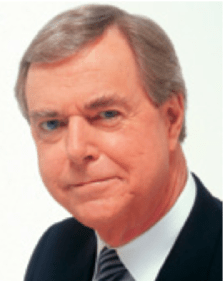The Trudeau Decade, Again
Column / Don Newman
History, the saying goes, is just one darned thing after another. That has certainly been the case for the readers, writers and publishers of this magazine in its decade of existence.
When Policy first appeared in 2013, Canada had a stable majority government. The Conservatives and their leader, Stephen Harper, had finally achieved their objective. The general election of 2011 had elected them with clear majority and another benefit as well — voters had dispatched the Liberals, Canada’s “natural governing party”, to third place in the House of Commons with just over 30 seats.
In April of 2013. the Liberals elected a new leader; Justin Trudeau, the young, good looking and unproven, son of former Prime Minister Pierre Trudeau, who had dominated Canadian politics from 1968 to 1984 in another decade-and-a-half that was transformational for Canada. Harper was so unimpressed that, in 2015 when an election was due, he called it a month early because he thought an elongated campaign would expose Trudeau as immature and unready to lead a government. He was wrong. Trudeau got more impressive the longer the campaign lasted. By election night, the Liberals had won a majority and Harper promptly retired from public life.
Since then, it has been the age of Justin. He has been re-elected twice, each time with a minority government. But after the second minority he moved to secure the Liberals’ place in power by entering into an agreement with the New Democrats to have their support on confidence votes, which, if lost by the government, could trigger an election. The confidence and supply agreement could be ended early, but as it stands, will be in effect until October 2025, when by law there has to be an election.
That agreement has taken some of the pressure off the government as it deals with the changes these past 10 years have brought.
In his second mandate, before the agreement with the NDP, Trudeau had to deal with a once-in-a-century occurrence; the COVID-19 pandemic that took 50,000 lives in this country with the death toll still climbing, although the case numbers are dropping and the plague is on the wane. In power, and working closely with the provinces, the Trudeau government went on an international vaccine-buying campaign, and, domestically, rushed into place a variety of income support programs for both individuals and businesses that were financed with ultra-low interest rate loans from the Bank of Canada.
Not everyone was impressed. In February, 2022, thousands of protesters descended on Ottawa in a convoy of 18-wheelers, clogging the streets around Parliament Hill, shutting down the nation’s capital and forcing the Trudeau government to invoke the Emergencies Act so that the police could clear the streets. The truckers said they were protesting the limits to freedom of restrictions imposed by governments to combat the spread of the pandemic. Unlike the truckers, most Canadians thought the restrictions were necessary.
Now, the fallout from the socioeconomic upheaval of the pandemic is coming due. The cost of living in Canada is as high as it has been since the end of the 1990s, with post-pandemic inflation a world-wide phenomenon being accelerated by another global event—the Russian invasion of Ukraine and the energy and food inflation it has created. On top of that, there is the military aid that NATO countries — Canada among them — are sending to Ukraine to hold off the Russian advances. A little farther out on the military horizon, the increased military spending — and the spectacular price tags attached to new ships and planes Canada is committed to acquiring — is adding to budgeting worries.
Trudeau says he plans to run in the 2025 election. He must say that to maintain his influence until he has decided if he actually will run. He will still be young enough but, like milk, prime ministers have a best-before date. He will have been in office 10 years, and that is about the maximum for a prime minister in this age. But if he does go — willingly or not — Justin Trudeau will know that he has served during a time that has shaped the country like few others.
Contributing Writer and Columnist Don Newman, an Officer of the Order of Canada and Lifetime Member of the Parliamentary Press Gallery, is Executive Vice President of Rubicon Strategy, based in Ottawa.

